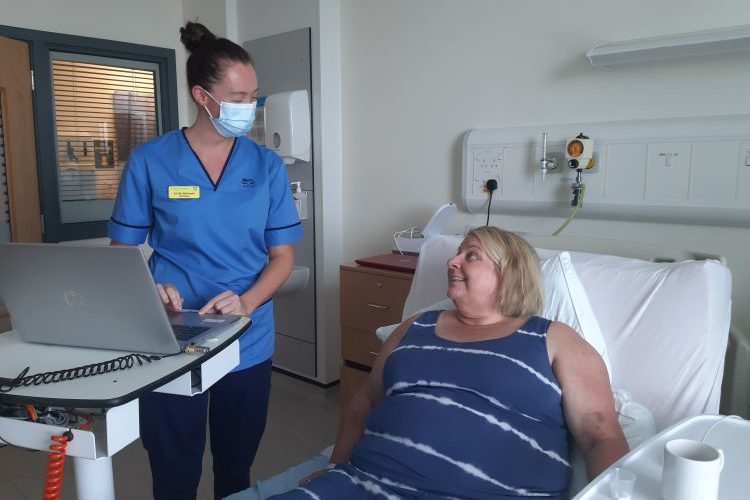The old-fashioned hand-written hospital drug chart has been used for decades – but now NHSGGC has introduced a new electronic prescribing system fit for the future.
Over one million doses of medicines have now been recorded on NHSGGC’s HEPMA system, which is being rolled out across our hospitals to make the use of medicines safer and more efficient.
NHSGGC introduced the WellSky HEPMA (Hospital Prescribing and Medicines Administration) system, with an initial pilot taking place at the Queen Elizabeth University Hospital.
Dr Brian Digby, who leads the HEPMA programme said: “HEPMA replaces the paper drug chart previously used in hospitals. HEPMA will be used in over 300 wards and 100 theatres across NHSGGC, making this the largest installation of the system in the UK.
The Queen Elizabeth University Hospital campus was the first site to go live, and roll-out at this site will be complete by the end of next month.”
HEPMA is sophisticated and can automatically provide prescribing advice to highlight medicines which interact with each other and alert clinical staff about a patient’s allergies.
The system also highlights the medicines each patient is due, making the process of administering medicines to patients easier and quicker.
Dr Digby added: “Moving away from the paper drug chart makes it easier for several members of the clinical team to review the patient’s medicines information at the same time, and the detailed information in HEPMA makes it possible to analyse and improve medicines practice across NHSGGC. HEPMA is a key part of our Digital Strategy to modernise healthcare.
“As a team we are supporting nurses, doctors and other staff as the system rolls out over the next 16 months. Clinical staff like the new HEPMA system and they are working closely with the HEPMA team to ensure it is introduced successfully.” Morag Gardner, Chief Nurse for NHSGGC’s South sector, said, “HEPMA is a real step forward for nursing staff across NHSGGC, streamlining the process of giving medicines to patients and prompting the team about medicines which are due.
“It’s a great example of how technology can help our clinical teams provide the best possible care to patients.”


